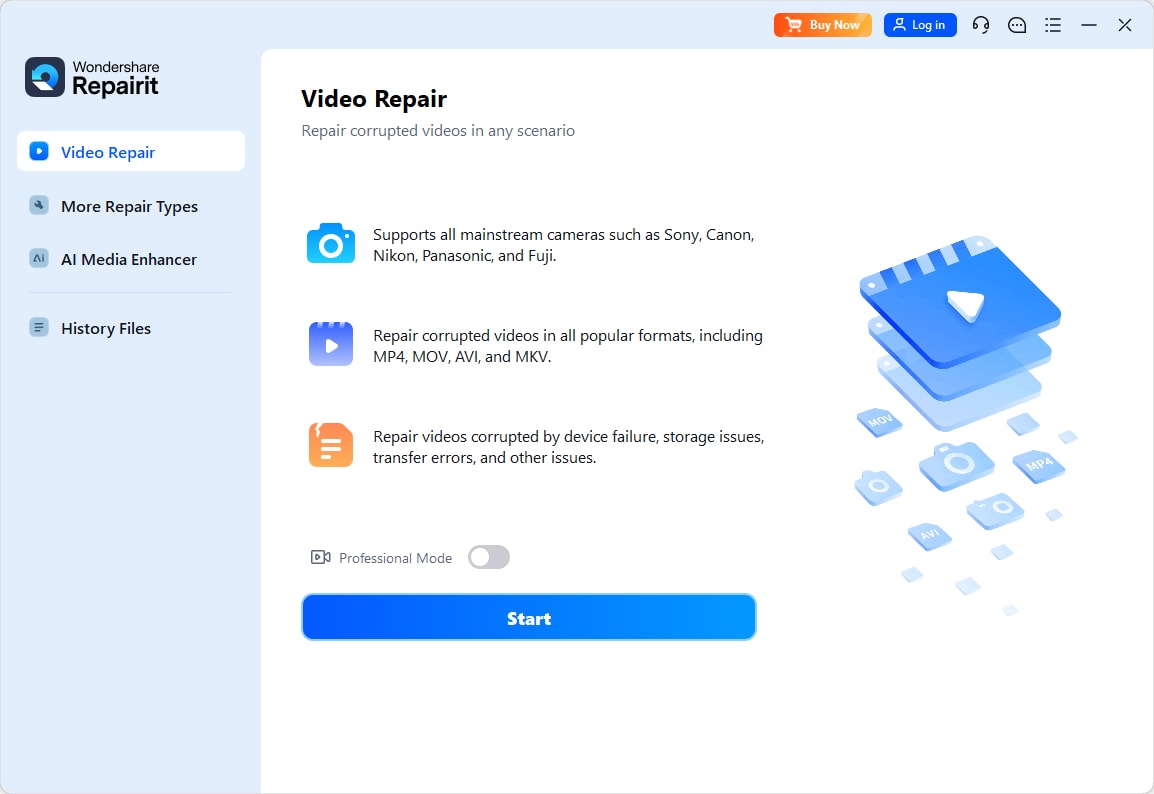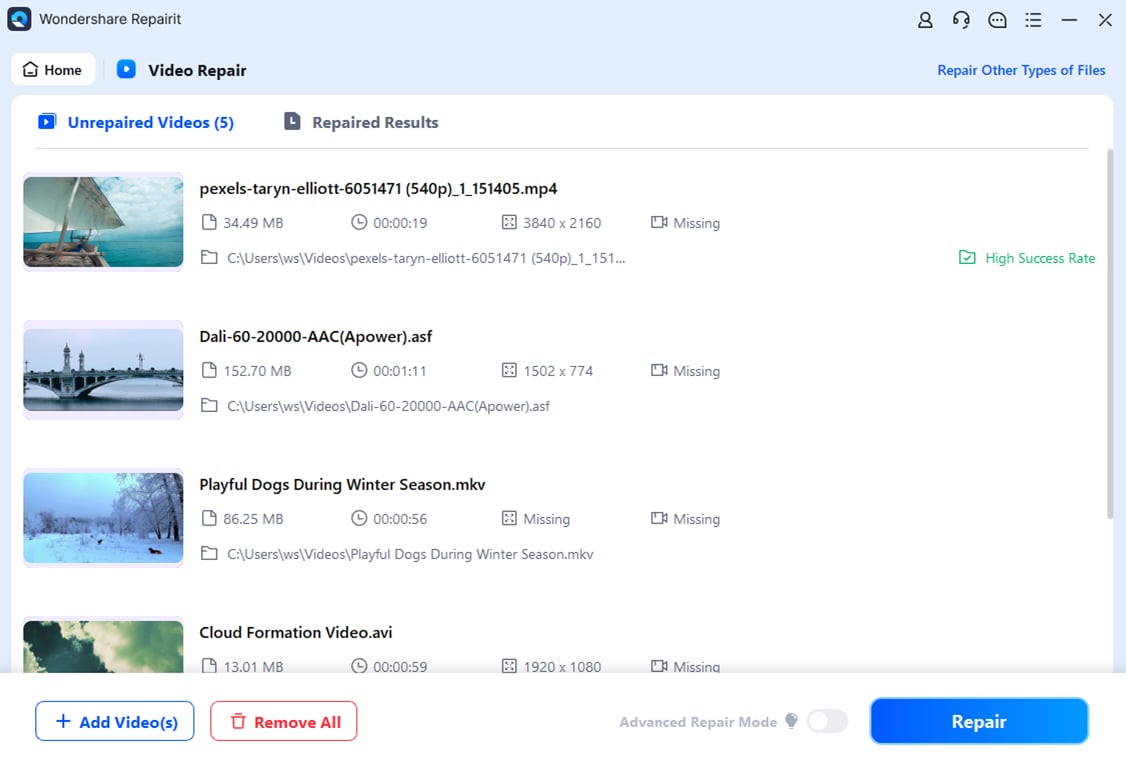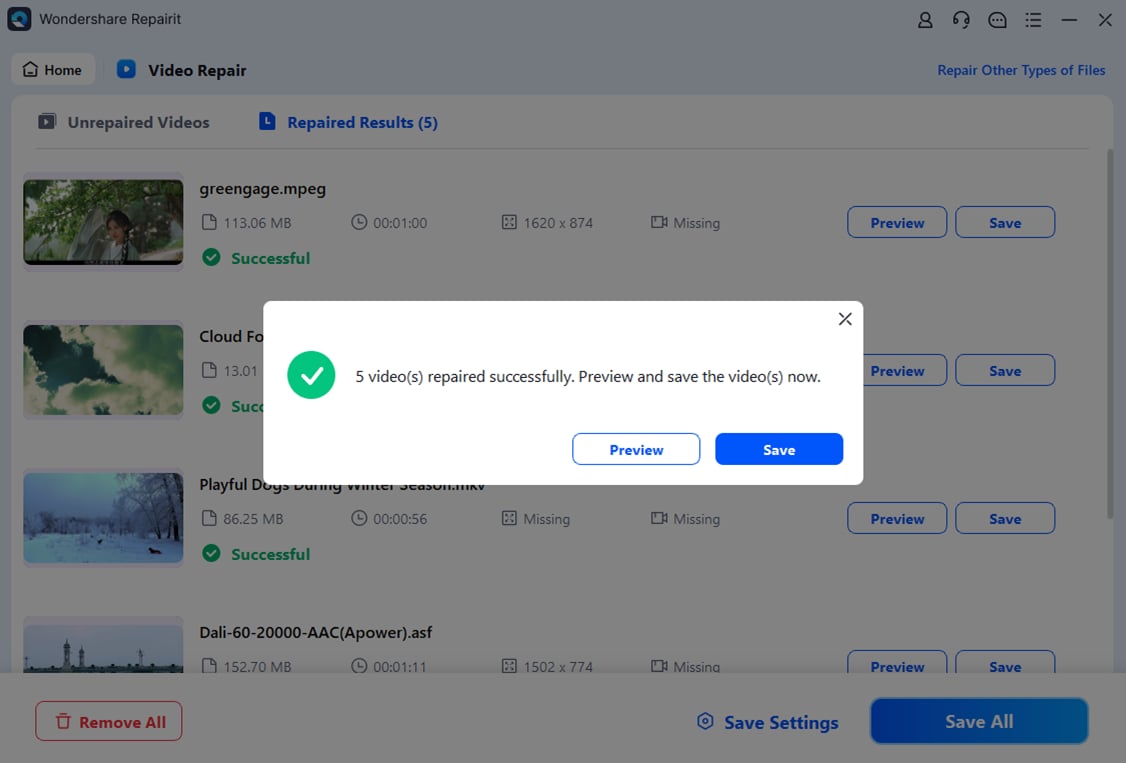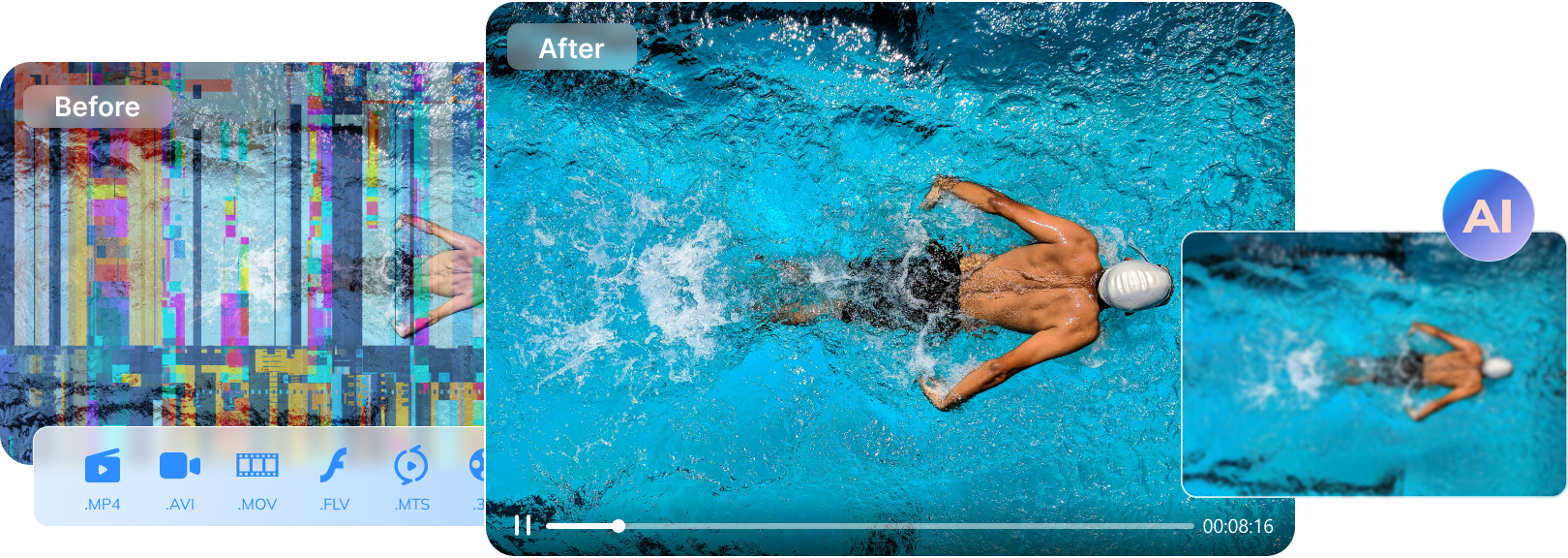Is your phone running low on storage? Do you have lots of videos and photos you really want to keep? Don’t worry; transferring those videos to an SD card can be a total game-changer!
It not only frees up valuable space on your device, but it also gives you a handy way to store and revisit your favorite memories. In this guide, we will share 4 easy methods of how to move video from phone to SD card so you can enjoy a smooth and stress-free experience!
In this article
Part 1: Why Transfer Photos and Videos to SD Card?

If you’re contemplating whether to transfer your videos and photos to an SD card from your device, here are some reasons that will help you make an informed decision:
- It Maximizes Your Phone's Potential
You can free up space on your phone by moving media files to an SD card. This will help you increase your phone's storage capacity.
- It Enables Installation of More Apps
With more free space, you can easily download and install more apps without worrying about running out of storage.
- It Safeguards Against Data Loss
If your phone is lost, stolen, or stops working, your memories will still be safe on the SD card.
- It Boosts Speed and Responsiveness
Keeping less data on your phone’s internal memory can make it work better overall.
- It Allows Smoother Multitasking
With less strain on the device, you can switch between apps and tasks more easily.
Part 2: 4 Ways to Move Videos from Phone to SD Card
Now that you know the benefits of moving your videos and photos to an SD card from your phone, let us take you to 4 ways how to move videos to SD card:
Method 1: Using File Manager (Android)
The first and most common method to move video from phone to SD card is via File Manager. This method enables you to easily select and move your videos from your Android device to an SD card with just a few taps.
Here’s how:
Step 1: On your Android device, go to the File Manager. It may appear as "Files" on some devices.

Step 2: From the files, select "Internal Storage" or "Phone".

Step 3: Select the files you want to move by long pressing on them and tap on "Move" at the bottom of the screen.

Step 4: Now, select "SD Card" from the options to move your files to its folder.

And that’s how to move videos from phone to SD card in just a few taps!
Method 2: Using Files By Google (Android)
The next method on our list of how to transfer video from phone to SD card is by using the Files by Google app. It is a powerful file management app developed by Google that helps you organize, clean up, and share your files in a hassle-free manner.
Here’s how to transfer videos to SD card using this app:
Step 1: Download the "Files by Google" app from the Play Store.
Step 2: Launch the app and select the folder that contains the videos and photos you want to transfer.

Step 3: Select the files, tap on the 3 dots at the top-right corner, and select "Move To" from the options.

Step 4: Select "SD Card" from the options and tap "Move here" to complete the transfer process.

Method 3: Via AutoPlay (iPhone)
If you’re looking for a way to move photos and videos to SD card from an iPhone, you can do it via the AutoPlay feature on Windows. For this method, you need an SD card reader and a trusty lighting cable.
Once you have everything ready, follow these steps:
Step 1: Connect your iPhone to your Windows PC using a lightning cable.
Step 2: Place your SD card in an SD card reader and connect it to your PC as well.
Step 3: Once your PC recognizes your iPhone, the AutoPlay screen will appear.
Step 4: Click on "Open Device to View Files" from the AutoPlay options.

Step 5: Now, select all the photos and videos that you want to transfer, copy them, and paste them into the SD card folder. Or, just drag and drop them.
Method 4: Using iPhoto (iPhone)
If you’re a Mac user, transferring videos and photos from your iPhone to an SD card is as easy as pie! You can do it directly via the iPhoto app on your Mac. All you need is an SD card reader and a lightning cable.
Here’s what to do:
Step 1: Use a lightning cable to connect your iPhone to your Mac. Next, connect your SD card reader to your Mac as well.
Step 2: Go to "Finder" and select your device from the sidebar.
Step 3: This will open all media from your iPhone. Select the videos and photos that you wish to move to your SD card, and click "Import Selected." All the selected media will be sent to the iPhoto library on your Mac.

Step 4: Open the iPhoto library, click on "File > Export" and choose the SD card as the destination. Click "Export" again to initiate the transfer.

This method might be a bit difficult for non-tech-savvy users, but it is a great way for Mac users to transfer iPhone videos to an SD card.
Part 3: Why Can’t I Transfer Videos from My Device to SD Card?
Here are a few common reasons why you might be unable to transfer videos from your device to an SD card:
1. SD Card Issues: Make sure your SD card is formatted properly, FAT32 or exFAT usually works best. Also, if your SD card is physically damaged or corrupted, it might have trouble transferring files.
2. Insufficient Storage: There’s a possibility that your SD card is already full. In this case, you won't be able to transfer more files to it.
3. Software Limitations: Some devices or operating systems might have certain limits on the types of files you can move to an SD card.
4. File System Compatibility: If your device and SD card use different file systems, transferring files could be a bit tricky.
5. Software Glitches: Sometimes, software bugs or glitches can get in the way of transferring files smoothly.
Part 4: How to Fix Corrupted Videos from SD Card?
If you’re having issues transferring videos from your device to an SD card and suspect that it is due to corrupted video files, you can fix them with Repairit Video Repair.
It is a fantastic and user-friendly tool that's here to help you fix those troublesome, corrupted, or damaged videos. Whether your videos got messed up because of accidental deletion, a camera glitch, or a file transfer glitch, Repairit is designed to bring them back to life effortlessly.
Features of Repairit Video Repair:

-
Repair damaged videos with all levels of corruption, such as video not playing, video no sound, out-of-sync video or audio, playback errors, header corruption, flickering video, missing video codec, etc.
-
Repair full HD, 4K, and 8K videos and support 18 popular formats, including MOV, MP4, M2TS, INSV, M4V, WMV, MPEG, ASF, etc.
-
Repair damaged or corrupted videos caused by video compression, system crash, video format change, etc.
-
Repair critically damaged or corrupted videos available on SD cards, mobile phones, cameras, USB flash drives, etc.
-
Repairit has a quick and advanced scanning mode. You can use either depending on the level of corruption the video file has undergone.
-
No limit to the number and size of the repairable videos.
-
Support Windows 11/10/8/7/Vista, Windows Server 2003/2008/2012/2016/2019/2022, and macOS 10.12~macOS 15.
Here are the steps on how to fix corrupted videos using Repairit:
Step 1: Select "Video Repair" and click on "+ Add" to add the corrupted videos to it.

Step 2: Once you have added all the videos to Repairit, click on "Repair" to initiate the repairing process.

Step 3: It will take a few minutes for the tool to repair your videos, after which you will get the option to "Preview" or "Save" the fixed files. You can preview to see if the video is fixed, and then you can save it to your PC.

Fix Corrupted Videos from SD Card on Any Device

Part 5: Tips to Move Videos to SD Card
Here are some tips on how to move video from internal storage to SD card:
- Check SD Card Compatibility: Always check that your SD card is compatible with your device and has enough space for what you need.
- Format Your SD Card: Formatting your SD card can be a great way to fix any underlying issues and give it a performance boost.
- Back-Up Important Files: Before transferring, make sure to back up your important files to prevent accidental data loss.
- Use Your Device's Built-in Transfer Tool: Many devices have built-in tools to transfer files to SD cards. Therefore, we suggest referring to your device's user manual for specific instructions.
- Utilize File Manager Apps: Always use a reliable file manager app to manually select and move videos to your SD card.
- Use Cloud Storage Services: It’s a good idea to transfer your videos to a cloud storage service like Google Drive or Dropbox and then download them to your SD card.
Conclusion
Whether you are running out of storage on your device, or just want to create a backup of your cherished videos and photos, moving them to an SD card is a viable solution.
In this comprehensive guide, we have put together 4 simple and easy ways to move videos to SD card. We have also included some tips on transferring videos, along with step-by-step instructions to repair corrupted video files using Repairit.
Related Video >>: How to Fix Corrupted SD Card?
FAQ
-
Q. How can I move videos from internal storage to an SD card?
You can move videos from your device’s internal storage to an SD card in many ways. If you’re an Android user, using the File Manager or Google My Files is a great way. For iPhone users, we suggest making use of the AutoPlay feature on Windows or using the iPhoto app on Mac. -
Q. How do I save pictures and videos directly to my SD card?
To save pictures and videos directly to your SD card, you will have to set it as default storage. For this:1: Go to the Camera settings.2: Select "Storage Location" and set your SD card as the location.


 ChatGPT
ChatGPT
 Perplexity
Perplexity
 Google AI Mode
Google AI Mode
 Grok
Grok

